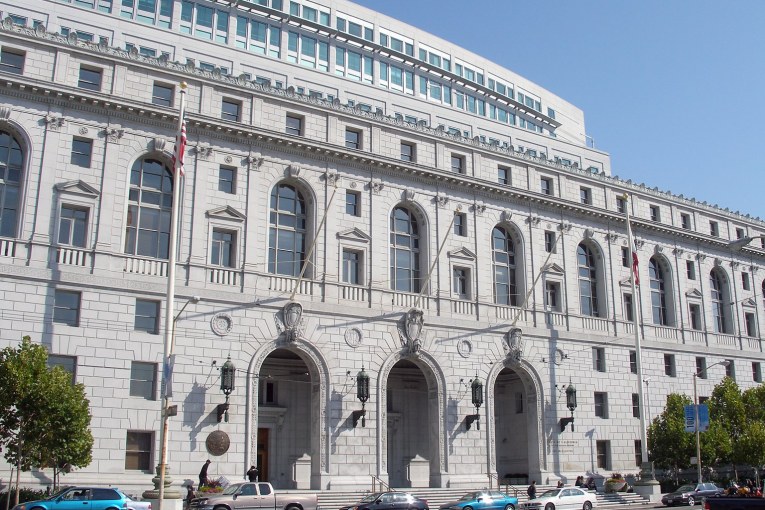
 One of the big questions is the prosecutor’s constitutional duty to disclose evidence to criminal defendants and for the first time, the California Supreme Court ruled, that law enforcement agencies can tell prosecutors that officers have been investigated for misconduct if that officer is a witness in a criminal case.
One of the big questions is the prosecutor’s constitutional duty to disclose evidence to criminal defendants and for the first time, the California Supreme Court ruled, that law enforcement agencies can tell prosecutors that officers have been investigated for misconduct if that officer is a witness in a criminal case.
The unanimous court ruled that “the Department may provide prosecutors with the Brady alerts at issue here without violating confidentiality.” At issue is the fact that otherwise confidential personnel records, may also contain Brady material, which is evidence that is deemed exculpatory and under the US Supreme Court Decision, Brady v. Maryland, must be disclosed to defendants.
Writes the court: “Because confidential records may contain Brady material, construing the Pitchess statutes to permit Brady alerts best “harmonize[s]” Brady and Pitchess.
Under Pitchess, the 1974 California high court, established guidelines for disclosing law enforcement officers’ personnel information during discovery.
The court notes, that Brady imposes upon prosecutors, “a duty to learn of any favorable evidence known to the others acting on the government’s behalf in [a] case, including the police.”
In addition, the court notes: “Prosecutors are deemed constructively aware of Brady material known to anyone on the prosecution team and must share that information with the defense.”
The key point however is this: “In this context, construing the Pitchess statutes to cut off the flow of information from law enforcement personnel to prosecutors would be anathema to Brady compliance.”
The court adds: “Indeed, to interpret “confidential” as forbidding the sharing of information with prosecutors would do more than forbid the formal Brady-list-and-alert practice at issue here. Even without formal procedures, conscientious prosecutors have conferred with law enforcement agencies to identify confidential files that may contain impeachment material.”
The case arises out of a suit brought by the Los Angeles Deputy Sheriffs. The union sued the Sheriff’s department due to their practice of maintaining a “Brady list,” which reported named deputies with a history of allegation of various types of misconduct including excessive force and tampering with evidence.
The union sought to block the department from disclosing to prosecutors who was on that list without going through the Pitchess process.
In part the Los Angeles courts granted the union’s motion, but left open the possibility of disclosure should the officer testify in a pending criminal case.
The high court actually parsed their ruling here. They basically agreed that inclusion n the Brady list is confidential, but then ruled that confidential does not mean completely secret.
They write, “no one suggests that the Pitchess statutes completely prevent prosecutors from accessing confidential personnel records.”
Under current law, Section 832.7(a) includes the exception for “investigations . . . concerning the conduct of peace officers or custodial officers . . . conducted by . . . a district attorney’s  office, or the Attorney General’s office.”
office, or the Attorney General’s office.”
The problem as the court notes is that without things like Brady alerts, “prosecutors may be unaware that a Pitchess motion should be filed — and such a motion, if filed, may not succeed. Thus, interpreting the Pitchess statutes to prohibit Brady alerts would pose a substantial threat to Brady compliance.”
“Deeming information ‘confidential’ creates insiders, with whom information may be shared, and outsiders, with whom sharing information might be an impermissible disclosure,” the justices said. “The text of the Pitchess statutes does not clearly indicate that prosecutors are outsiders forbidden from receiving confidential Brady alerts.”
In response to the ruling, the LA Sheriff’s Department indicated that it would not keep a Brady list and instead intends to hand over Brady information to prosecutors “on a case-by-case basis.”
“Because the sheriff’s department understands the needs of the community, we plan on sitting down with the district attorney to work out an effective, efficient, transparent and open process for turning over the information,” the department said.
Meanwhile, the union was disappointed with the high court’s ruling.
“Nevertheless, we emphasize that the court’s decision that Brady alerts are permissible is limited to pending criminal prosecutions and does not allow the department’s wholesale release to the prosecution of its Brady List, as it originally set out to do,” the union said. “As our next step, ALADS representatives have already sent a meet-and-confer request to develop a policy for handling these cases within the perimeters laid out by today’s decision.”
The LA Times reported that legal analysts believe the ruling will benefit the defense “and possibly change the outcome of some cases.”
However, many are concerned that there is no mechanism to enforce this law – moreover as is often the case, neither the defense nor the court is aware of what they don’t know in real-time.
Moreover, even when the prosecutors are alerted to the problem, trial judges possess broad discretion to decide what information gets disclosed.
—David M. Greenwald reporting


“Transparency of Misconduct”
Great band name!
Miley Cyrus ‘twerking’ in cellophane in front of kids? She’d just need the band you refer to!